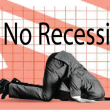by David Zahn, CFA, FRM, Franklin Templeton Investments
In 2016, it was hard to know what to expect from Donald Trump, an unconventional candidate who won the US presidential election in a surprise victory. Trump was underestimated back then, but I believed he would shake things up—and he certainly has. Europeans are closely watching the US election this year with great interest.
Four years ago, Trump’s nationalistic rhetoric resonated with many Americans, with a focus on “making America great again” even at the expense of strained relations with other countries. Ties between the United States and China, and the United States and Europe, became strained.
If Trump wins a second term, relations between the United States and Europe will likely remain strained, and the trade wars that have characterised his time in office are likely to continue. With inward-looking US policies and a trade war with China, Europe has been caught in the middle.
The trend towards anti-globalisation will likely continue, with more unilateral terms of trade, which is more problematic for Europe. Europeans like to do things in a multilateral way—that’s how the European Union (EU) works, with 27 countries that have to sit down together and compromise on any number of issues. That doesn’t mean every member country is always in agreement, but Europeans operate within a multinational approach.
So, a Trump win will bring more geopolitical volatility not only for Europe but across the globe.
Will Europeans Embrace Biden?
If Biden were to win come November, we will see a rollback of many of Trump’s policies in a number of areas, including trade and environmental issues. In terms of foreign policy, he has stated he favours a multilateral approach (similar to the Europeans) and that he’d want to rebuild bridges with countries that might currently be strained under Trump.
Biden is the type of politician Europeans are used to dealing with; he wants to bring people together and that would likely be well received in Europe.
One other big area of focus for Europe that Biden is more aligned with is global warming. He has announced a US$2 trillion climate change plan, which embraces clean energy and cutting fossil fuel emissions while improving infrastructure. His plan is very much in line with how the EU’s seven-year budget and rescue fund commit significant focus on the greening of the economy there. This issue could bridge the gap and bring the two countries closer together.
Trump withdrew from the Paris Agreement—a multinational pledge by some 190 countries to cut greenhouse gas emissions—but Biden would likely bring the United States back in, which would be good for mending ties with Europe.
If the United States and Europe become more aligned again on the need to tackle climate change and green their economies, it would likely create more innovation in financial markets—for example, more green bonds or other securities to fund these projects. In my view, the Europeans would really embrace this development, as they want to get emissions down and are willing to spend to do it.
That said, there are two main areas of concern or uncertainty for the markets under a Biden presidency. There is a general fear of increases in taxes, and the uncertainty over how future US tax policy will feed into markets globally.
Deregulation is also something to watch. We had a big deregulation push under Trump. So, if some of that is unwound, it could create barriers for many businesses to operate.
Under either candidate, however, fiscal spending looks likely to continue. Republicans typically have been considered to be more fiscally conservative, but that hasn’t been the case with Trump, particularly given COVID-19 and the likelihood it will still be an issue into 2021.
No matter which US candidate wins, we do not believe the dynamics for fixed income markets globally will change much. If the COVID-19 crisis hadn’t happened, things would probably look quite different, but given how central banks have flooded the world with liquidity, I don’t foresee a massive rise in yields just because there was a change in presidents. We still have plenty of liquidity to keep markets calm and could dampen some of the volatility we’d normally see within an election cycle.
While certain policies will change with a different US administration, for now we aren’t changing our approach to fixed income investing.
We still favour corporate bonds—both investment grade and high yield—as we think they offer good value. We also like non-core European sovereign bonds, including Italy, Portugal and Slovenia and smaller countries like Cyprus, which should continue to see good support from the European Central Bank.
Europe’s €750 billion rescue deal, which provides relief to EU member states suffering from the COVID-19 pandemic, has affirmed European integration and provides stability to the market. The premium an investor would have to pay for European assets given the risk of a potential European breakup has declined, and that’s unchanged regardless of the US election. But we will certainly be watching for developments from across the pond.
Important Legal Information
This material is intended to be of general interest only and should not be construed as individual investment advice or a recommendation or solicitation to buy, sell or hold any security or to adopt any investment strategy. It does not constitute legal or tax advice.
The views expressed are those of the investment manager and the comments, opinions and analyses are rendered as of publication date (or specific date in some cases) and may change without notice. The information provided in this material is not intended as a complete analysis of every material fact regarding any country, region or market.
Data from third party sources may have been used in the preparation of this material and Franklin Templeton (“FT”) has not independently verified, validated or audited such data. FT accepts no liability whatsoever for any loss arising from use of this information and reliance upon the comments, opinions and analyses in the material is at the sole discretion of the user.
Products, services and information may not be available in all jurisdictions and are offered outside the U.S. by other FT affiliates and/or their distributors as local laws and regulation permits. Please consult your own financial professional or Franklin Templeton institutional contact for further information on availability of products and services in your jurisdiction.
Issued in the U.S. by Franklin Templeton Distributors, Inc., One Franklin Parkway, San Mateo, California 94403-1906, (800) DIAL BEN/342-5236, franklintempleton.com—Franklin Templeton Distributors, Inc. is the principal distributor of Franklin Templeton Investments’ U.S. registered products, which are not FDIC insured; may lose value; and are not bank guaranteed and are available only in jurisdictions where an offer or solicitation of such products is permitted under applicable laws and regulation.
CFA® and Chartered Financial Analyst® are trademarks owned by CFA Institute.
What Are the Risks?
All investments involve risks, including possible loss of principal. The value of investments can go down as well as up, and investors may not get back the full amount invested. Bond prices generally move in the opposite direction of interest rates. Thus, as prices of bonds in an investment portfolio adjust to a rise in interest rates, the value of the portfolio may decline. Investments in foreign securities involve special risks including currency fluctuations, economic instability and political developments.
This post was first published at the official blog of Franklin Templeton Investments.














